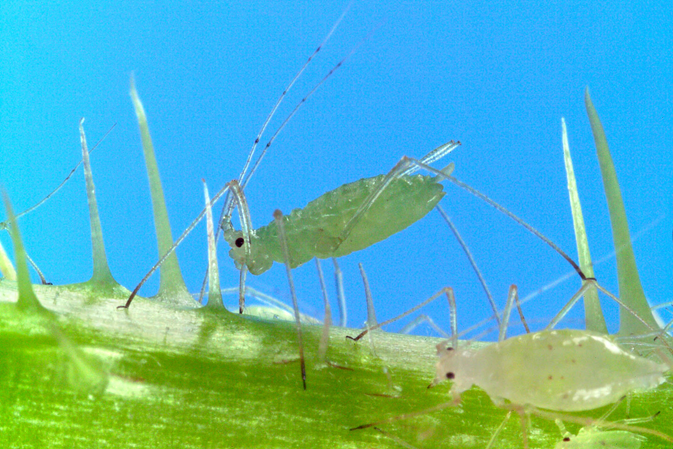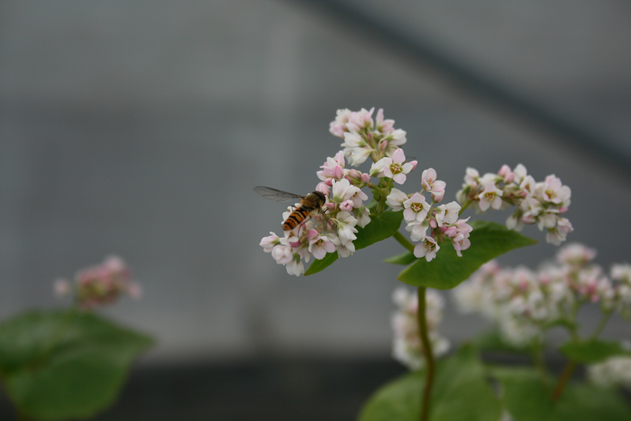 We have been breeding raspberry varieties for Scotland, UK and Europe for > 40 years. A key trait (conferred by one or more major resistance genes) is for resistance to the main aphid pest, the large raspberry aphid. This strategy has been very successful but over decades the pest has co-evolved resistance-breaking biotypes. We are now at a ‘tipping point’ where the pest can overcome resistance genes in the crop faster than plant breeders can introduce new types of resistance (typically taking 10+ years).
We have been breeding raspberry varieties for Scotland, UK and Europe for > 40 years. A key trait (conferred by one or more major resistance genes) is for resistance to the main aphid pest, the large raspberry aphid. This strategy has been very successful but over decades the pest has co-evolved resistance-breaking biotypes. We are now at a ‘tipping point’ where the pest can overcome resistance genes in the crop faster than plant breeders can introduce new types of resistance (typically taking 10+ years).
In order to increase the durability of resistance genes, we are introducing complementary tools into the IPM toolbox. These include biocontrol using parasitoids, enhanced aphid predation by hoverflies using supplementary floral resources such as buckwheat and replacement of conventional insecticides with more environmentally friendly biopesticides.
 A further development is to ensure our developing IPM toolbox tools (resistant varieties, biocontrol, biopesticides) are compatible with key pollinators in the system (bees, hoverflies). We closely monitor not only the efficacy of IPM treatments against target pests, but also their potentially negative impacts on beneficial non-target organisms, especially bees, hoverflies, predators and parasitoids.
A further development is to ensure our developing IPM toolbox tools (resistant varieties, biocontrol, biopesticides) are compatible with key pollinators in the system (bees, hoverflies). We closely monitor not only the efficacy of IPM treatments against target pests, but also their potentially negative impacts on beneficial non-target organisms, especially bees, hoverflies, predators and parasitoids.
Plant traits for pest and disease control in soft fruit are a tool in the Soft fruit IPM Toolbox.
